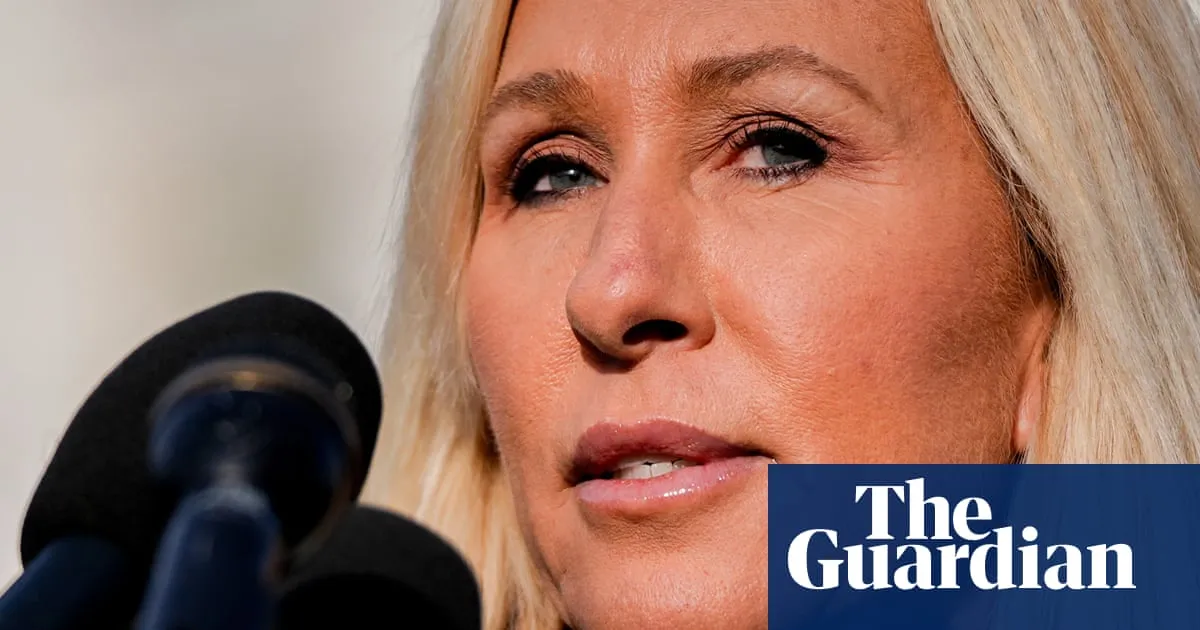
In a surprising turn of events, Marjorie Taylor Greene announced her resignation from Congress late Friday, declaring that she refused to be a “battered wife” following her tumultuous relationship with former President Donald Trump. This announcement has drawn sharp criticism from Alexandria Ocasio-Cortez, the Democratic congresswoman known for her frequent clashes with Greene. In a statement shared on her Instagram account, Ocasio-Cortez remarked, “She’s carefully timing her departure just 1-2 days after her pension kicks in,” while also condemning Greene's voting record on healthcare issues.
Effective January 5, Greene's resignation was marked by a 10-minute video where she expressed her dissatisfaction with the Republican Party. She voiced her concerns regarding various issues, including the public release of the Jeffrey Epstein files, U.S. funding for foreign conflicts, and Trump’s potential backing of a candidate against her. Greene emphasized her discontent, stating, “I refuse to be a ‘battered wife’ hoping it all goes away and gets better.” This resignation comes as a shock, particularly given her vocal support for Trump.
Ocasio-Cortez did not hold back in her criticism, pointing out that Greene’s actions have not aligned with her rhetoric. “For all her talk, she’s STILL voting with them to gut healthcare,” she stated. Greene has a track record of controversial votes, including her support for cuts to Medicaid and reductions in enhanced tax credits for the Affordable Care Act. However, she later criticized the ACA cuts when premiums began to rise.
Republican congressman Thomas Massie, who has also publicly disagreed with Trump on issues like the Epstein files, expressed his sadness for the country but happiness for Greene. On social media, he stated, “Marjorie embodies what a true Representative should be.” His praise for Greene’s candidness contrasted sharply with the sentiments expressed by Trump, who referred to Greene as “Marjorie ‘Traitor’ Brown” on Truth Social, implying her resignation was due to dwindling poll numbers and a fear of facing a primary challenge.
Despite his critical remarks, Trump later told NBC News that he would like to see Greene return to politics, acknowledging the challenges she would face. “It’s not going to be easy for her,” he said, suggesting that a period of rest would be beneficial for her. Greene’s departure and Trump’s comments underscore the evolving dynamics within the Republican Party.
Among those reacting to Greene's resignation was David Hogg, a survivor of the 2018 Parkland school shooting, who had previously clashed with Greene over gun control measures. Hogg posted a simple “See ya!” on social media, highlighting the contentious history between the two. Greene’s past actions, including a confrontation with Hogg, have led many to call for her resignation in the past.
As Greene steps away from Congress, her decision reflects broader tensions within the Republican Party and the implications of her relationship with Trump. Former Republican House member Barbara Comstock praised Greene's choice, stating that she was right to avoid being a “Republican ‘battered wife’” under Trump’s influence. Greene's resignation not only marks the end of her current political chapter but also raises questions about the future trajectory of her career and the ongoing debates within the GOP.